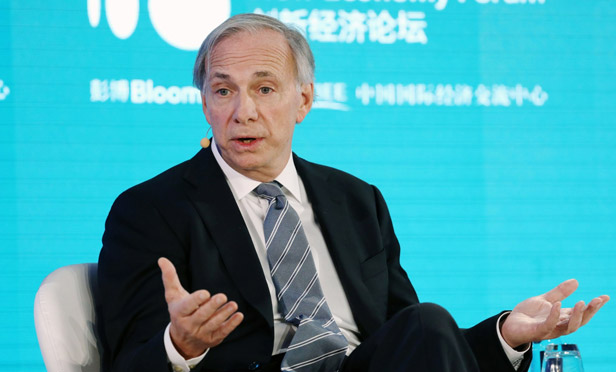

NOT FOR REPRINT
Ray Dalio Criticizes Fed Rate Cut, Calls for Bigger Moves Globally
News March 16, 2020 at 03:59 PM
Share & Print

NOT FOR REPRINT
© 2025 ALM Global, LLC, All Rights Reserved. Request academic re-use from www.copyright.com. All other uses, submit a request to [email protected]. For more information visit Asset & Logo Licensing.


